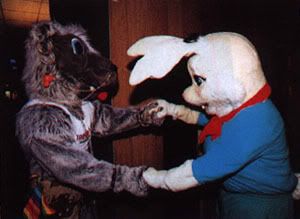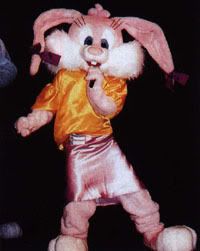You are using an out of date browser. It may not display this or other websites correctly.
You should upgrade or use an alternative browser.
You should upgrade or use an alternative browser.
Kevin Shields bringing back MBV!
- Thread starter Chris
- Start date
loveless is no shit pop modernism, latterday scott and his handmedown xenakis glissandi can't get close
Hmm, there's absolutely no Xenakis influence on "Tilt" whatsoever, but never mind, eh?
frankie t could possibly accompany a fat trucker wanking on child porn but anything less would be doing it immense disservice
Hahahahaha
Guybrush
Dittohead
This thread is the faintest attempt at iconoclasm I’ve seen in a while.  In between Mazzy Star’s ‘Fade into You’ and Liz Frasier’s muddy mumblings, this has got to be the most trite, and therefore the most functional, make-out music imaginable. I remember reading somewhere about a blind-test examining the effect different perfumes had on the participants’ desire. The results showed that the perfume that aroused a specific participating woman the most was the one most closely resemblant of her previous lover’s perfume*—same thing here.
In between Mazzy Star’s ‘Fade into You’ and Liz Frasier’s muddy mumblings, this has got to be the most trite, and therefore the most functional, make-out music imaginable. I remember reading somewhere about a blind-test examining the effect different perfumes had on the participants’ desire. The results showed that the perfume that aroused a specific participating woman the most was the one most closely resemblant of her previous lover’s perfume*—same thing here.
* Assuming that the scent was associated with pleasant memories, obviously.
* Assuming that the scent was associated with pleasant memories, obviously.
N
nomadologist
Guest
this cracks me up
venus in furs would be good if it weren't so boring to listen to VU because i killed them by the time i was 17.
i need new vistas. i am so jaded i can't even listen to music. i can't even look at your shitty records. i already had sex with the only do-able members of DFA-signed bands. they are officially over. everything sucks. there is no music on earth that reflects my own coolness and overall superiority.
venus in furs would be good if it weren't so boring to listen to VU because i killed them by the time i was 17.
i need new vistas. i am so jaded i can't even listen to music. i can't even look at your shitty records. i already had sex with the only do-able members of DFA-signed bands. they are officially over. everything sucks. there is no music on earth that reflects my own coolness and overall superiority.
Haha. Xenakis/Ligeti is all over "The Drift", but there's none on "Tilt", which is remarkably conventionally harmonic/melodic. I don't believe he's ever referenced either of them (preferring to talk about Bartok if anyone)... The pitch bent bit I'm referring to is all guitars anyway.
venus in furs would be good if it weren't so boring to listen to VU because i killed them by the time i was 17.
I forget how good that album is for ages! I mean, it's totally shoegaze before it's time, no really!
i already had sex with the only do-able members of DFA-signed bands. they are officially over. everything sucks. there is no music on earth that reflects my own coolness and overall superiority.
you mean....they've...LOST THEIR EDGE???? HAHAHAA (ok i'll shut up. we should all go do some work now or something)
enough scott hate, he is far too distinguished to be a lost pawn in defence of mbv
vu have been overexposed for so long that there's little left to see, their third album especially has been so thoroughly abused by 20yrs of indie
i'm coming to think of loveless as the hybrid of my two other rock favourite neu! and hadaka no rallizes, especially neu!2 which is a gift that keeps on giving
vu have been overexposed for so long that there's little left to see, their third album especially has been so thoroughly abused by 20yrs of indie
i'm coming to think of loveless as the hybrid of my two other rock favourite neu! and hadaka no rallizes, especially neu!2 which is a gift that keeps on giving
mistersloane
heavy heavy monster sound
I love all of you. Each. And. Every. One. xxx
The problem with MBV is that the idea of them (as presented in verbalized descriptions of their sound) far outstrips what is presented on record. I love the idea of them, but none of their records especially seems to match up with what I expect, and in itself is rather thin gauzy indie pop. There's not enough texture beyond vaguely pitch bendy guitars, its never extreme enough, or thick enough... not enough feed-backing shimmer, not enough noise, just vaguely bored sounding pop music.
But it's almost the lack of edges and excessiveness, and the blurry, impressionist subtlety of the texture, that makes the album cast the strange spell that it does (the sex with the care bear sensation... some of us are into it, some not...
I suppose other dreampop bands and electronic artists have made more functionally effective textural music, but it's the strange middle ground that Loveless resides in between indiepop, psych, ambient, and noise; without being an "authentic" or typical case of any of these styles, that makes this album distinct.
* have to say, as much as I like Loveless... of all of the things I've seen written about the album, the care bear thing was the most profoundly apt... which disturbs me that I like the album so much...
Last edited:
mistersloane
heavy heavy monster sound



My Bloody Valentine fan convention
N
nomadologist
Guest
omg i just pissed myself when i came home and opened my laptop...the page auto-refreshed and those pictures lept out at me in all their horror
neu 2 sure is good but have you heard harmonia? the album cover alone would make me return trip, if i'd ever stopped
neu 2 sure is good but have you heard harmonia? the album cover alone would make me return trip, if i'd ever stopped
N
nomadologist
Guest
oh snap, shudder!
PS Rothko is about the least "painterly" painter there ever was. "Painterly" is a very technical term that means a painting has "visible brush strokes, and/or a rough impasto surface."
http://www.thefreedictionary.com/painterly
paint·er·ly Pronunciation (pntr-l)
adj.
1. Of, relating to, or characteristic of a painter; artistic.
2.
a. Having qualities unique to the art of painting.
b. Of, relating to, or being a style of painting marked by openness of form, with shapes distinguished by variations of color rather than by outline or contour
All I meant was 1. or 2.a above, and said "insert yr fave painter here".
I didn't mean to jump down your throat or anything Nomadologist, just responding to your points as I (mis)understood them, just like you did with mine
Sorry, had to get that out of my system
I also don't think music should be, or is usually, about expressing personal emotions (ugh), just that that (in crucially non-personal non-expressive ways I've already elaborated on) is one of the things MBV did so well, as well as all the other stuff they did - texture, melody, contrast, tension, surface, depth, dynamics, total music innit, as Reynolds once said about jungle. My main suspicion of them years after might be that they can easily fall into the twin traps of jouissance theory to which I would more readily have subscribed back then - Barthes' blissed-out subject ("it cuts, it crackles, it comes; that is bliss" from The Pleasure Of The Text - seems to sum them up neatly?!) and the Lacanian split subject of desire-as-lack. But maybe I'm no longer jung or easily freudened and too easily deleuded.
too easily deleuded
nice
N
nomadologist
Guest
i clearly take all of this so seriously that i'm wounded by your words, dHarry. i don't know if i'll ever recover.
but you should search Wikipedia for "painterly." thefreedictionary is missing an art historical term. i'm way sure about this cuz i wrote like reams of ridiculously boring papers about that shit as an undergrad art/philosophy major.
i guess i must love you fuckers, too, in some sick, twisted way. or at the very least i must love dubble-u-c, because i'm going on a "date" in an hour in the pouring, freezing rain with a swiss conceptual artist/photographer just so i can eventually meet his friend and landlord genesis p'orridge and ask whether they used ionisers on stage when he was in TG because dubble-u-c wonders. this is dedication. at least they only live like 10 blocks away
but you should search Wikipedia for "painterly." thefreedictionary is missing an art historical term. i'm way sure about this cuz i wrote like reams of ridiculously boring papers about that shit as an undergrad art/philosophy major.
i guess i must love you fuckers, too, in some sick, twisted way. or at the very least i must love dubble-u-c, because i'm going on a "date" in an hour in the pouring, freezing rain with a swiss conceptual artist/photographer just so i can eventually meet his friend and landlord genesis p'orridge and ask whether they used ionisers on stage when he was in TG because dubble-u-c wonders. this is dedication. at least they only live like 10 blocks away
mistersloane
heavy heavy monster sound
Mistersloane, you are one sick, erm, puppy...
So the one thing we can all agree on is the aptness of the Care Bear sex'n'syrup simile?
Thank you!
Yup. My Bloody Valentine, forever now known as 'that band wot the furries like'.
Last edited:
N
nomadologist
Guest
would it be funny to tell someone on a date that you're a furry? like what if i insisted i was a furry. i bet i'd have to explain it to. i could print out those pictures and bring them with me...sorry, i only like to have sex while wearing a polyester-lined acrylic bear suit!
mistersloane
heavy heavy monster sound
would it be funny to tell someone on a date that you're a furry? like what if i insisted i was a furry. i bet i'd have to explain it to. i could print out those pictures and bring them with me...sorry, i only like to have sex while wearing a polyester-lined acrylic bear suit!
I think this is one for the SOV thread.
